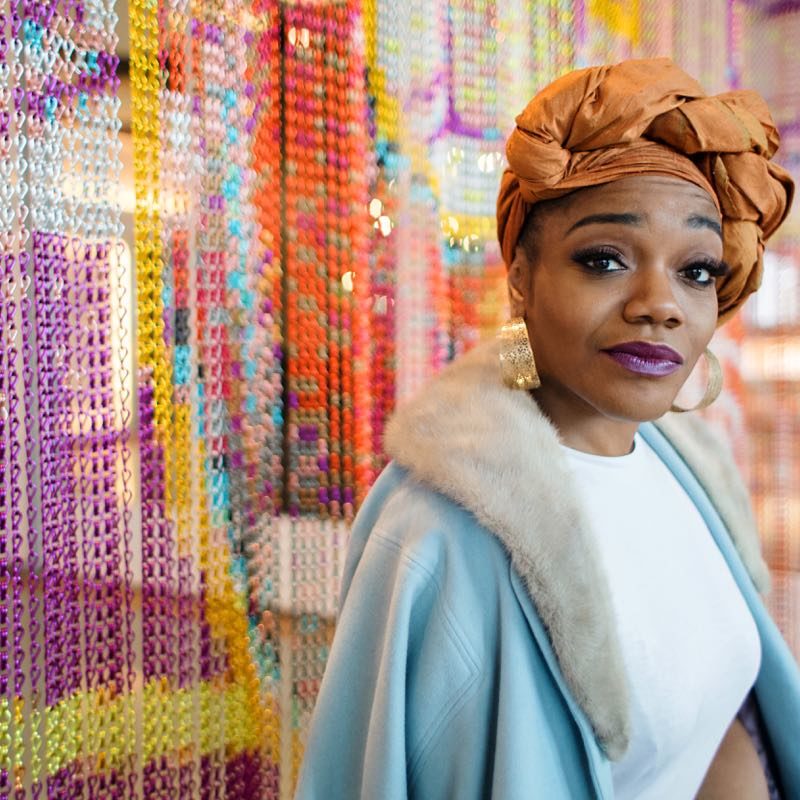Kenita Miller on “Once on This Island”
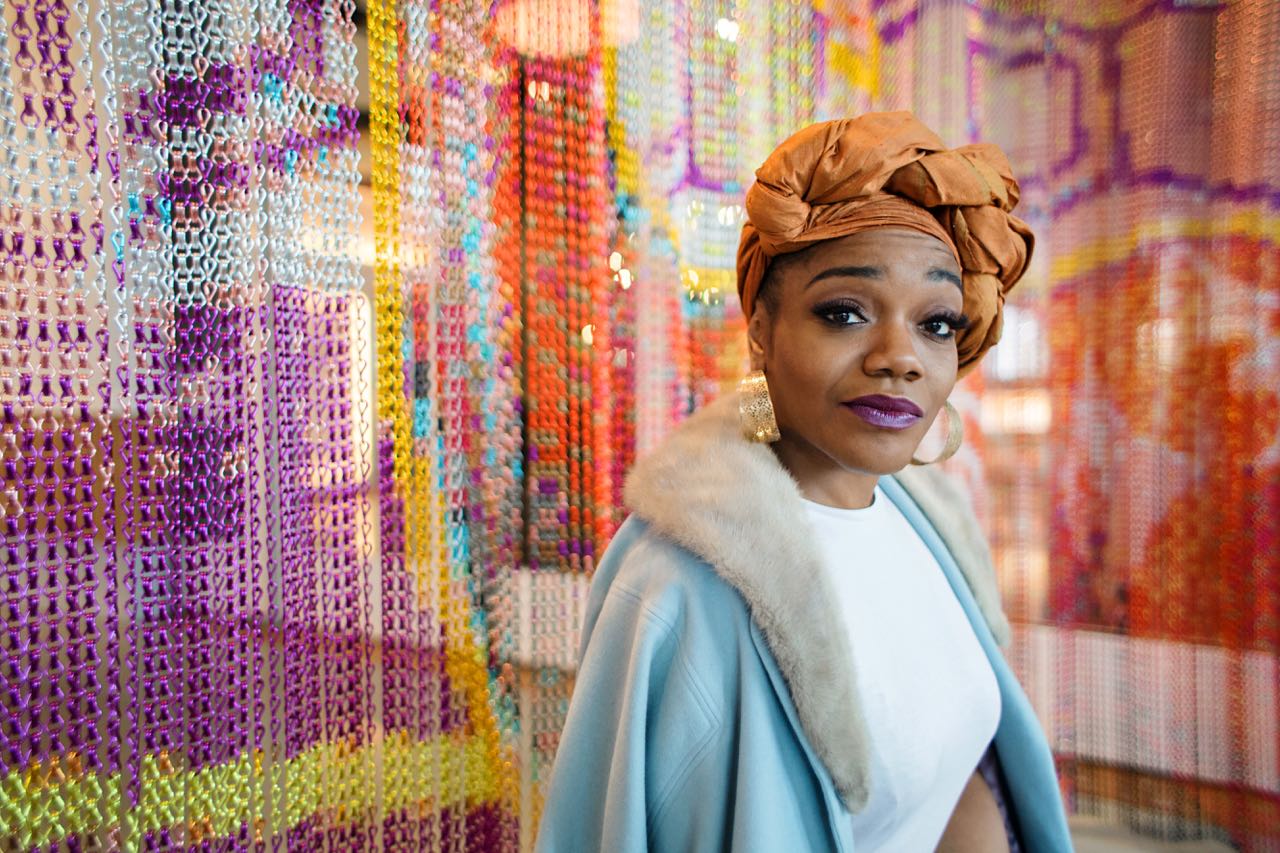
Written by Sarah Rebell
Photography by Tess Mayer
March 14th 2018
Kenita Miller is a musical theatre performer known for her impressive vocal chops. She has an equally impressive pattern of appearing in musicals by contemporary female songwriters. From her Broadway debut understudying LaChanze and Renée Elise Goldsberry in The Color Purple to her current featured turn as Mama Euralie in Once on This Island, Kenita has appeared in a vast array of shows depicting strong, empowered women. This critically-acclaimed production of Once on This Island is a particularly tactile, visceral telling of orphaned islander Ti Moune falling in love with the wealthy Daniel, in a test set forth by four gods trying to prove whether love is more powerful than death. I recently spoke with Kenita about how her own mom’s missionary work in hurricane-ravaged Haiti inspired her current portrayal of Ti Moune’s adopted mother Mama Euralie, and why she thinks art can be a conversation starter about rebuilding community, as well as a reflection of life.
Let’s start by talking a little bit about your history with Once On This Island, because this isn’t the first time you’ve done this show.
No, this isn’t. This is maybe number six? Five or six. And actually, when I was in high school, this show was one of the first shows that I got introduced to. A friend of mine, we were both musical theatre crazy, we were walking along the beach and we were singing Rent at the top of our lungs. And these two gentlemen walk over, and they go, “We’re casting this community theatre show, it’s called Once On this Island, have you ever heard of it?” And I was like, “No.” Well, they were like, “We would love for you to come be our Ti Moune.” I was 16 or 17 years old, which I’m definitely not anymore. I’m nowhere near close to that age. But that was my first time playing Ti Moune. And it was crazy. It’s come full circle, with me doing it on Broadway, but they found me by the water, just randomly, and it was kismet because I didn’t do much theatre before then. I thought I wanted to be a jazz vocalist. That night was integral in bringing musical theatre into my life. So this show has a lot of deep meaning, steering me in this direction to do this form of entertainment. And [since] then I’ve played [Ti Moune] a bunch of times, and I played Mama Euralie, at Paper Mill [Playhouse]. This experience has been like nothing that I’ve ever had the opportunity to do before; it’s definitely my all-time favorite in my life, overall. This show is very infectious. It has this magic around it, and it does do something to the human heart. No pun intended.
It sounds like you’ve really grown up with the musical. Do you look at scenes differently, or notice song moments hitting you in new ways, now that you’re viewing the show not from Ti Moune’s perspective but from her mother’s?
Definitely. I want to be a mom so bad; I want to experience that as a woman, what we can do with our bodies. But then also, when you think of what our journey is as a human being, it’s not forever. Nothing is. So, I think, playing Mama Euralie, it makes me think about all my relationships, and especially my parents. When we’re young we think of them as superheroes, and think that they’re just going to be there forever. And that’s not true. So I’m very grateful to have that. It’s something that challenges me as human being, to think about and to be okay with whatever emotion that brings about. Not to try to stifle it, because that’s a part of this whole thing, too.
Your interpretation of Mama Euralie really emphasizes how selfish Ti Moune’s love for Daniel can seem. When she leaves her home to follow Daniel to the city, Ti Moune is abandoning the woman who took her in and who gave her so much.
That specific moment, as far as Ti Moune’s perspective, is one of the things that makes my toes curl when I think about my parents. Because, at [Ti Moune’s] age, you’re so unaware. You are in love with life, in love with the experience that you know is to come, and just in love with dreaming and fighting for those dreams and testing your individuality. But you are, in a sense, completely unaware of the guidance that got you there. Because you’re so in it, and you think you’re going to be there forever. Especially at that age, there’s this sense of immortality, invincibility.
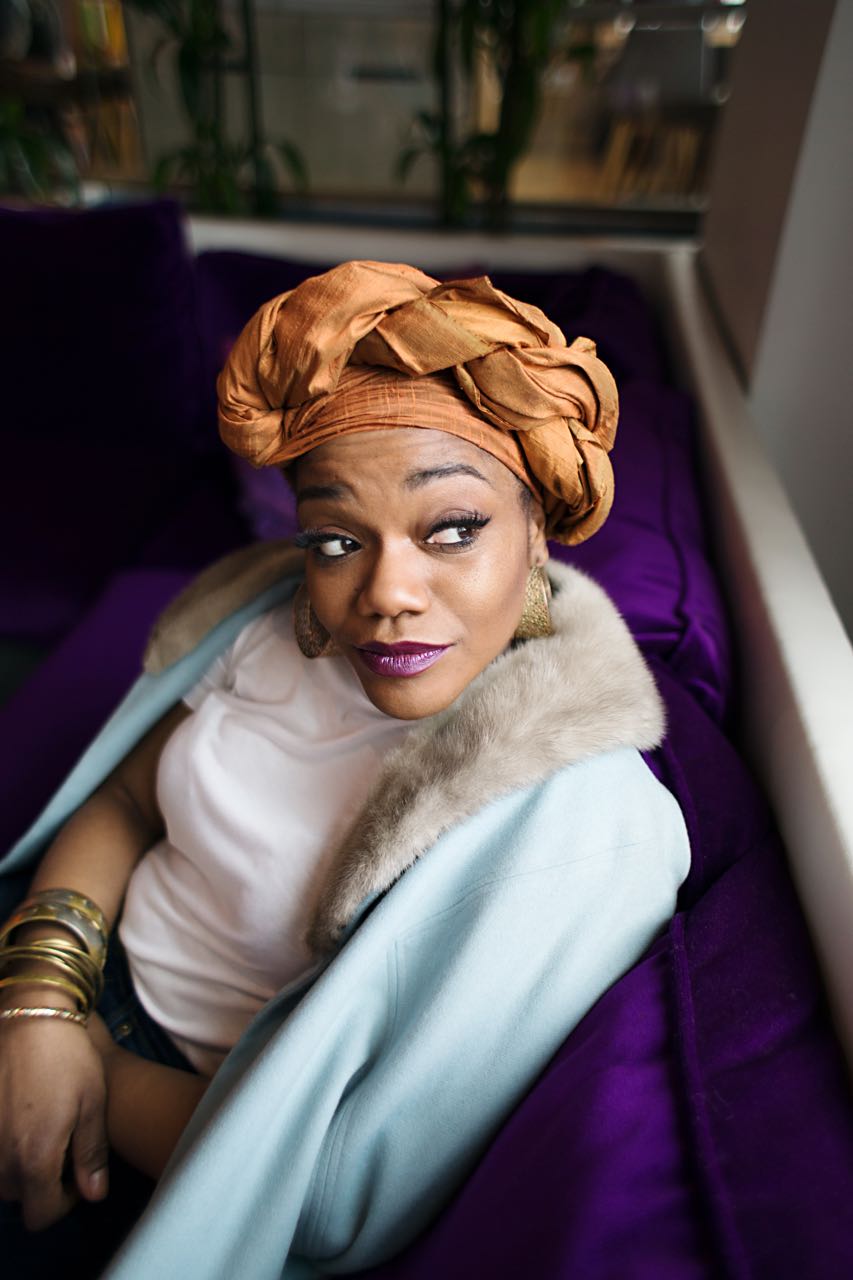
Does this show, especially with the particular set full of sand, ever take you back to being that 16-year-old girl on the beach?
Most definitely. It’s very emotional, and I’m very grateful. You brought up the sand, and I love it. I love it so much. Now, we’re in it 24/7 so it messes with your sinuses, and there are all these things you have to get used to, but I’ll take any moment to roll around in that sand. I do. Literally, there is sand coming out of every piece of clothing by the end. As an artist, it makes you feel like, “I did that.” It’s this sense of accomplishment. As an artist, we have this environment that is so visceral, and you don’t have to do much except be present. The sand, the rain, our chickens, and our goats. It’s incredible. It’s thrilling.
You mentioned that the sand affects your sinuses. Are there any other challenges to working with the sand, and with the animals, all of these elements that aren’t typically part of the Broadway stage?
Oh yeah, girl. I would say another part of your regimen has to be your body upkeep because, if you think about walking on sand on the beach, it takes a lot of energy. Then, to be dancing and also moving; the cast does everything. It’s very built into the show that we are in charge of everything—creating the set changes and the moves—and so it is very taxing on your body. It does take a lot of maintenance and a lot of self-care, but it’s worth it. It’s definitely worth it. The chickens, the goats… they are uncontrollable, but it’s another life force that you just are having to find a way to get in sync with. I’ve spent time with the chickens. They have a little playpen in the back that has all this hay and stuff. You walk into that room, and as soon as you start talking, they recognize your voice. They are now extended family; they’re a part of the family. And so, it is kind of beautiful.
I want just to brag because we’re on record: the other day, Hugh Jackman came to the theatre, and I ran up to him with a chicken—I think it was Lorrell—and I was like, “Lorrell, you’re famous. We will forever be able to say Hugh Jackman pet my chicken.” Which can be interpreted in so many ways. But this production has enhanced my life in so many ways. The people, the sand, the elements, and our animals.
And just to be fair to the other chickens, what are their names?
They’re all named after the Dreamgirls. So, that was Lorrell; we have Deena, Michelle, and Effie.
I love how even with the names for the chickens, you’re bringing more strong, powerful women into your show family.
Yes! Everything about this show feels empowering. It feels empowering as a person, as an artist. All of these are great challenges to have.
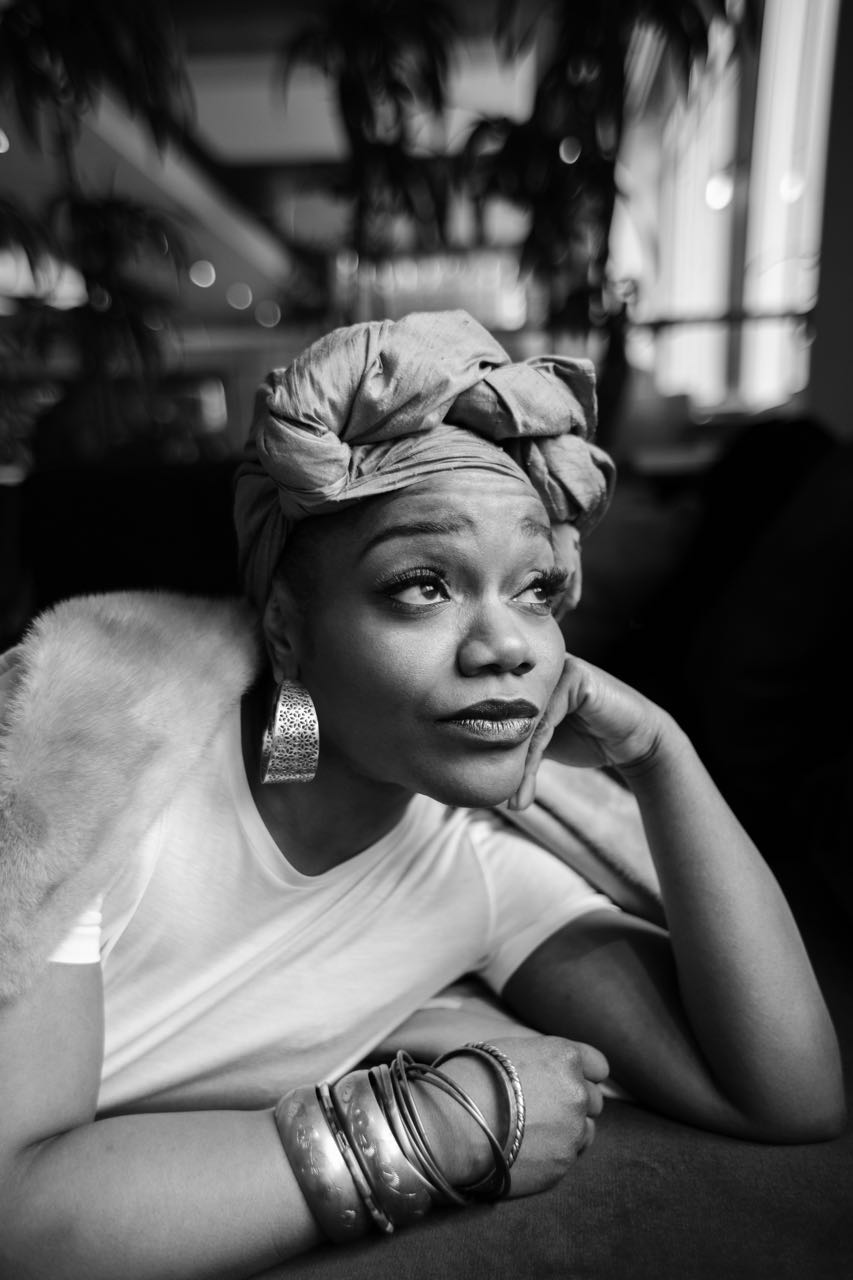
This particular production of Once on this Island has a lot of elements that really seem to reflect island culture. Obviously, you’ve done the show before, but did you do any special research for this particular production?
Our creative team was awesome, and our director [Michael Arden] is magical. He is such a thoughtful and smart individual. They actually went to Haiti, because especially our pre-show is set in Haiti after the devastation of the storm. They did a lot of research with the rebuilding of the communities around there, and so there was a lot that they brought back. A lot of visual [references], a lot of sound. There was a lot to help create the environment, aside from just the tangible, the sand and all that. A lot of us have pictures from the renderings that were actually taken there; our actual costumes are built off these people. So it does feel very close.
And then personally, my character Mama Euralie is based off of my mother. She actually did a bit of missionary work in Haiti. She was assigned to children that were orphaned after this devastation, helping to rebuild the school, which would give them a place to be. So, I went back to a lot of the footage, the photos, that she had from there. One of the things that my mom said that makes me think about the joy amidst the tragedy in our show was, when my mom came back, she said the thing that was mind-boggling was you saw devastation everywhere. You actually saw bodies still everywhere. But, she said, as they were rebuilding, what you could not shake was seeing the smiles, this impenetrable resilience. She was like, “In the middle of all of this, there was still, ‘Brother, how can I help you? Sister, how can I help you?’” And so, I do try my best to infuse a lot of that essence into the character.
That definitely seems to reflect the mentality of Mama Euralie. For somebody whose home was just devastated by a storm, to then say, “I’m going to take in a strange child now”—what a really generous act.
It is. And it just makes me think [of] why my mom, she is my symbol of resilience. When something goes down in my family, it doesn’t matter what, whether it’s extended family or not, they always come to my mom. And I often think, “What do you get in return?” It is like this unconditional generosity. So, yeah, I pay homage to her and her experience through Mama Euralie. It’s a gift. There is nothing that can be recreated in our pre-show to actually show the amount of devastation that these people [endured]. But we do our best to bring awareness to that. That is why art is beautiful. It gives you a platform to at least try your best, but also, too, it‘s a great conversation starter. Like, the conversation about rebuilding community, what we can do as human beings.
Were you working on the show when the hurricanes hit this past summer and fall?
Puerto Rico was a big one. That’s the one that stands out the most. I think we even tried to organize something, too, as far as relief. There was a benefit concert that we did through David Perlow, who is our assistant director, that a lot of our family and other Broadway community were involved in. And then, there are also other hurricane relief organizations that we constantly try to affiliate ourselves with and learn from, and stay in communication and contact with. Because we’re looking [out the window] at the snow now, and couple days before, it was spring. Mother Earth, she’s like, “I’m going fix myself. [What you do] that’s on you, but I’m going fix myself.” So climate is something to be very aware of, and our contribution to protecting it. The number of hurricanes that have happened in the past year, it is alarming.
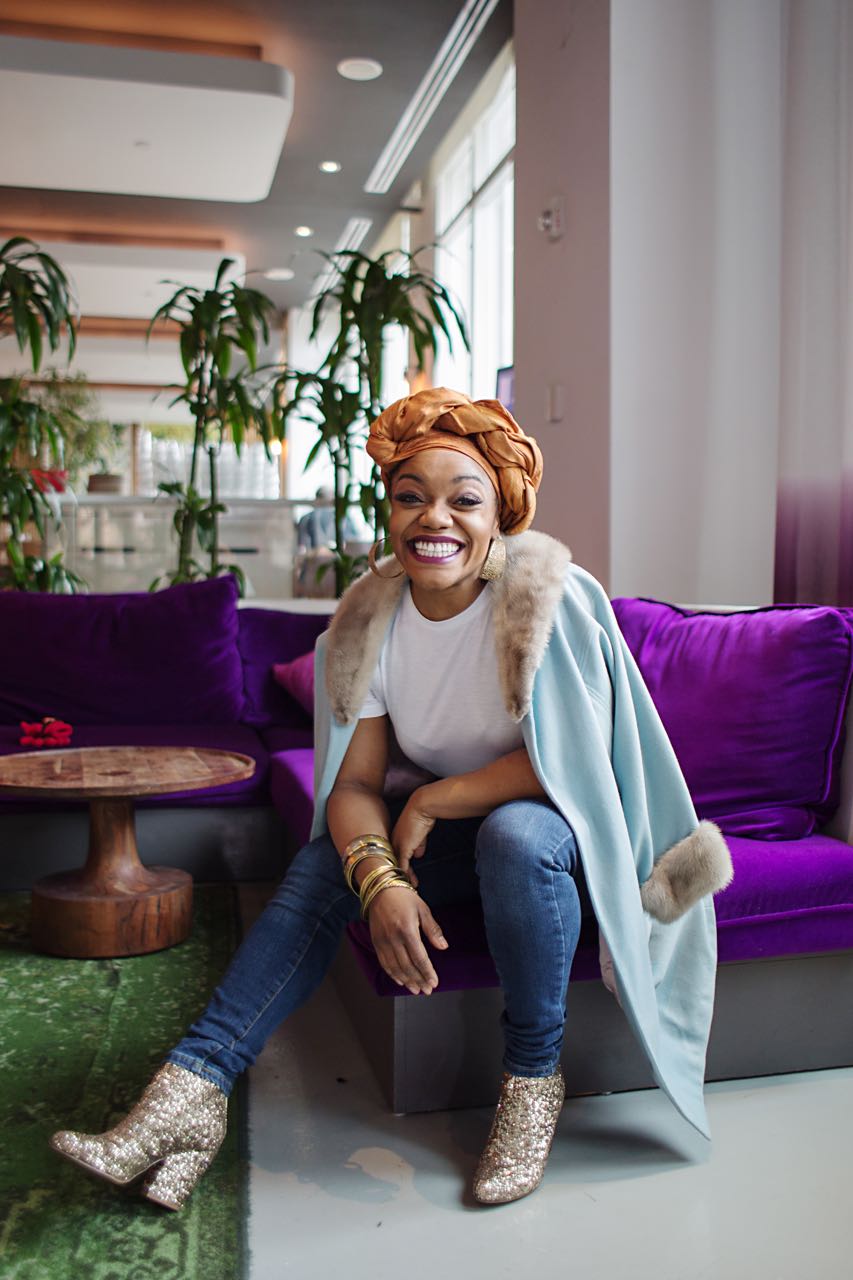
Once on this Island actually personifies Mother Earth and three other gods, who have the power to cause terrible storms. Does telling a nightly story about these personified divinities move you to reexamine your own thoughts on fate or spirituality?
For me, personally, my spirit—whatever that means, whatever is the essence of me—is very important. This is also part of Yoruba culture. They have an Asaka [the goddess of earth in Once on this Island] that they have different names for. They have a goddess of love. They have a god of death. It does make me think about all of these things, how I’m connected to the earth. I always think about passing, and our not knowing concretely what that means. We pass on, or we let go, maybe we go somewhere, or we don’t. This show does make me think about all of those pockets, and how [they] manifest in our lives. And then for me, my spirituality is [about] what I do with that. How do I help the earth? How do I help my fellow human being? That, for me, is spirituality, and it makes me feel connected to spirit. So I love that I get a show that caters to all that woo-woo, in a way. I think it’s wonderful to think about. It makes me think about my heart, you know?
Definitely. And it’s so cool that in this show, gods like Asaka and Papa Ge are not cast according to the traditional gender norms that people might expect.
Yeah, that is exciting. Because it’s time; it’s been beyond time. So I am like, “Do your damn thing, Michael Arden. Do your damn thing. Put it out there.” And it’s so courageous, because this is a show that a lot of people have loved for a long time, and may have wanted to see it in its traditional setting. But, if anything, you hear about how it enhances [the experience of the show], because it is a very humanitarian expression to do a gender swap like that. And also, too, if you think about spirituality, if these are gods, gods can do whatever the hell they want. If they want to come through a woman, they’re going to come through a woman. If they want to come through a man, they’re going do that. So I thought that was exciting and brilliant and beautiful. And our family is killer. Tamyra Gray and Merle Dandridge as Papa Ge are incredible, and make me even more proud to be a woman. Because there’s depth to us. And then Alex [Newell], he’s a goddess. He’s a goddess. And Alex is, I think, the perfect person to initiate this [non-traditional casting]. Because this person [Alex] is so passionate and full of life, he is Asaka. That’s who it’s supposed to be, because of the essence of this person. I think it’s incredible, and I’m excited to be a part of that. I am so pro-that.
You’ve worked on a lot of pieces by female writers like Kirsten Childs and Lynn Ahrens, which doesn’t necessarily happen in an industry that’s not always as inclusive or woman-friendly as we would hope. Is that a conscious choice on your part, to keep doing work by contemporary women writers?
I think it is, definitely. I do believe part of it is kismet because I do have[a] belief that you sync up with whatever you put your energy towards. And I consciously want to support female writers. I consciously want to support creativity that is pro-love and pro-evolution. That doesn’t necessarily have to be a woman, but specifically, women artists need support, which is a shame, but we do. And our perspective needs support. So as a female artist, I want to support those writers. And also, they have a beautiful way of giving us a very human voice. I have been given a lot of those people as a gift in my life. I don’t take that for granted. It’s been a gift. It’s hand in hand, both conscious and a blessing.
Do you think that there’s anything the industry could or should be doing to create a safer, more inclusive space for women writers, artists of color, people who are trying to tell diverse stories and put them up on stage?
Honestly, it just makes me think there should be no safe space. There are some ferocious women, don’t need no safe nothing. I would like us to be approached like that, in our ferocity. I feel like just continue to create the platform for art, and we should naturally be included, so we don’t need a safe space. That’s my opinion.
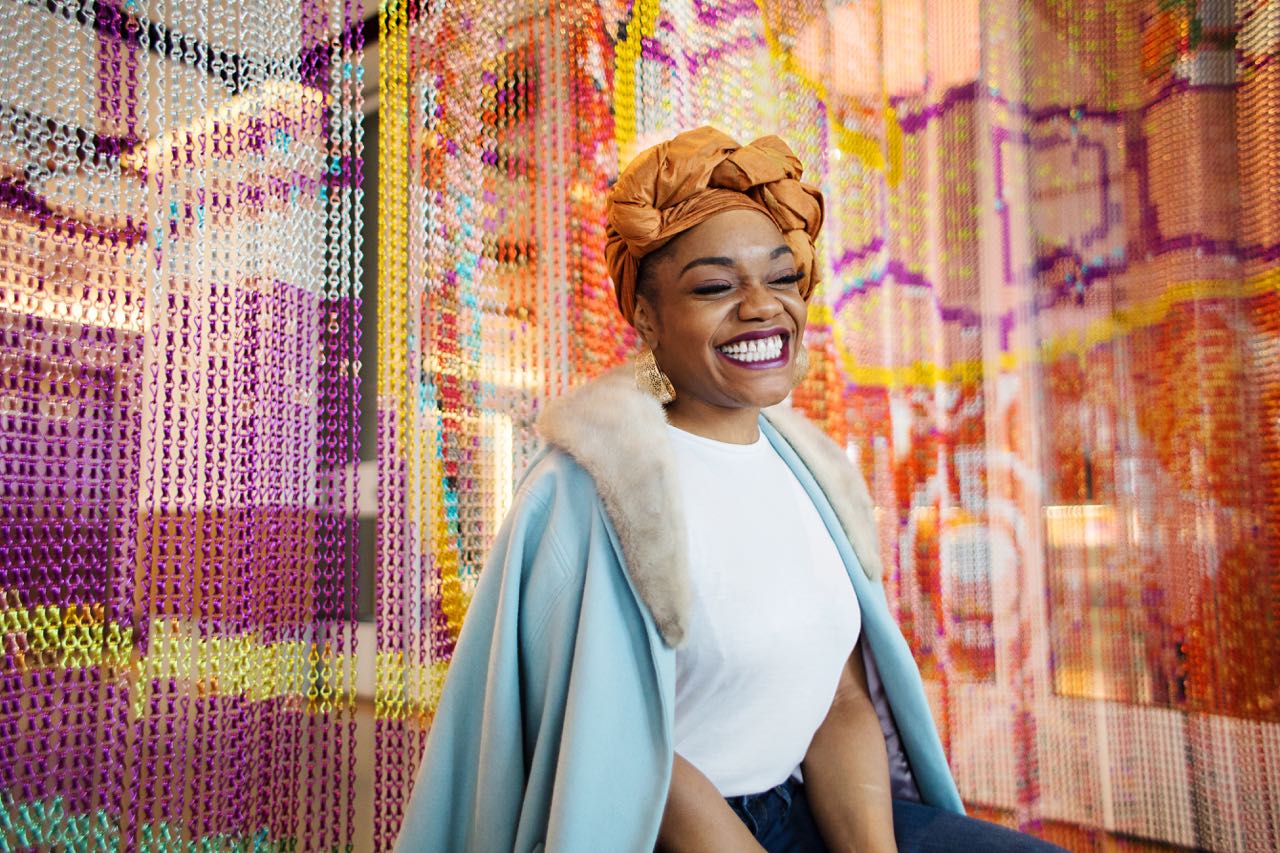
One of the best known songs from the show is the finale “We Tell the Story,” which has lyrics including, “Life is why we tell the story/pain is why we tell the story/love is why we tell the story” etc. Why do you tell the story, Kenita?
I tell the story because I have to. I tell the story because it’s important not to forget that love is important, that faith, hope, humanity, all of those things are important. I think it’s important to tell the story of death and pain and grief, because they all exist. They all can be overcome, but they all are felt by everybody. And that’s okay. It’s more than okay, it’s a part of life, and it’s beautiful. So, I tell the story to aid in the remembrance of that, and to aid in the remembrance of how resilient we are as human beings.
Now, to extrapolate that to theatre in general, why do you tell the story, not just of Once on this Island, but why do you choose to tell stories for a living, through song, through acting, through movement?
I love that question, because I think about it all the time. We get paid to jump around in costumes, and it has to be more than that. I have to feel like I have a purpose. I have to feel proud of what I’m doing. And what we do as performers, in telling different stories, whether it be a comedy or drama, we’re showing reflections of life. You get to open the door into somebody’s home, into their everyday, their world. But then you can also feel some connection, maybe you see yourself in it. And then maybe you make a different choice, or think about your choices. Or maybe it’s something that you completely disagree with, but you’re thinking. You’re not being complacent. Because [theatre] is a reflection of life.

